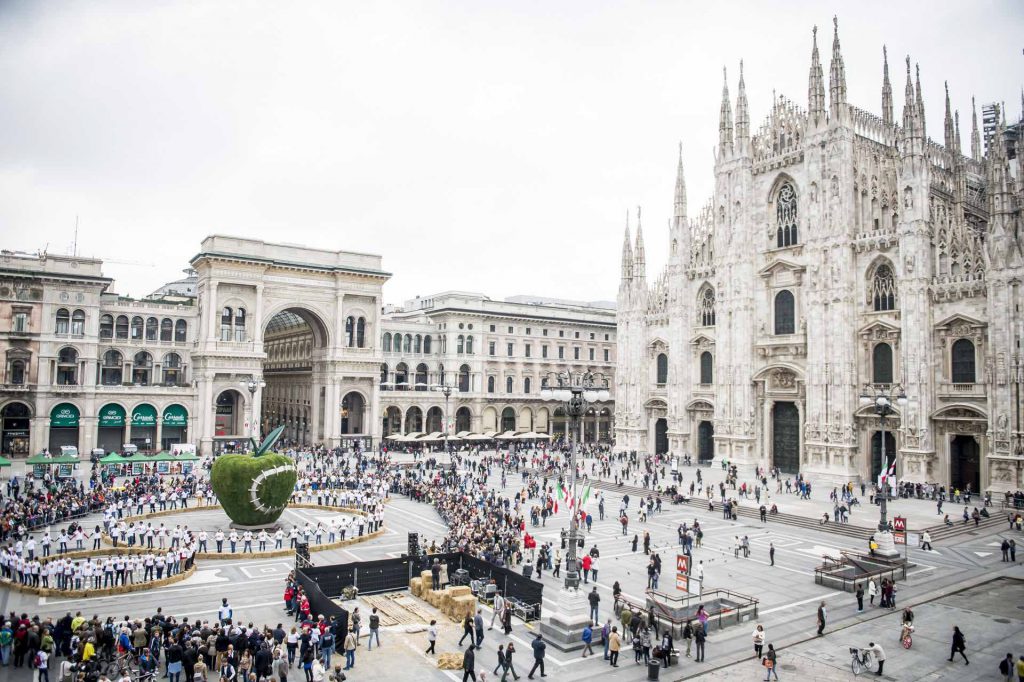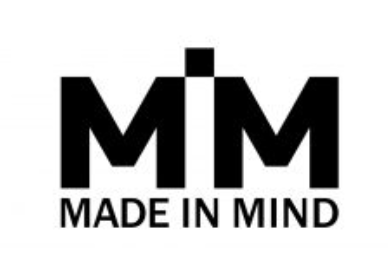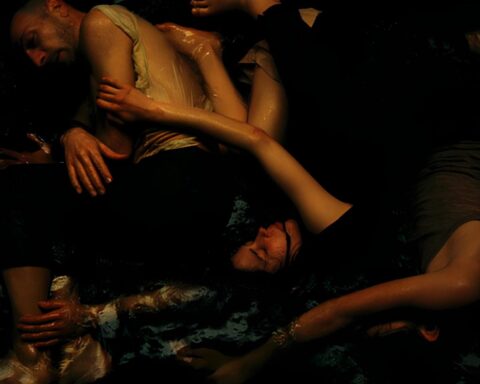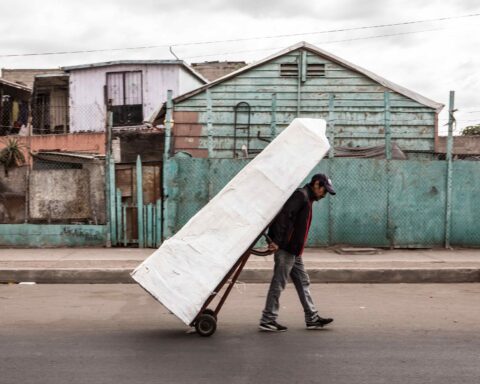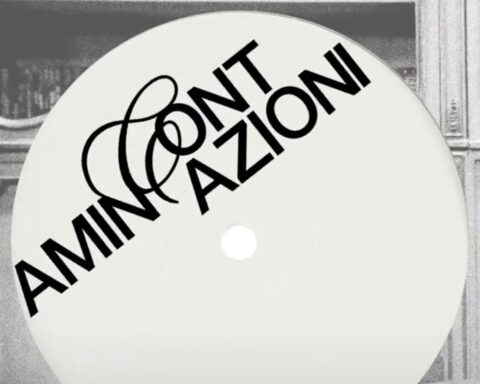Streams, the new Made In Mind column, comes from the desire to create a moment of reflection on social issues with established artists and professionals.
We chose the name Streams because we would like positive ideas and actions to flow freely in a varied way of perceiving the stimuli of the outside world. A mutual exchange. Let the ideas flow without which we would not be able to move, express ourselves, in two words: to live. We have been inspired by many words, such as passage, encounters, beyond and crossing. But Streams, like an always active volcano, wants to push, point, even discuss, with power and strength, on the ideas and gestures that artists make to subvert, sometimes the order, others in a less chaotic way, to make the world fertile, providing us with more visions and thus opening a dialogue.
The goal, therefore, is to address current issues such as respect for and protection of the environment, the sustainability of energy resources, equality of rights, immigration, health emergency … These are some of the social issues, in which we are enveloped, hot topics that concern us closely. How will we do it? Through the voice of artists who have always, with their art, their social commitment, sometimes through satire, put us in front of these reflections. We will also do this with sector operators, gallery owners, critics, authors, collectors, and other personalities from the art world, figures who are careful to spread these messages.
We inaugurate Streams with Michelangelo Pistoletto, a major artist of Arte Povera, who created a school, a city, a foundation, Cittadellarte from his art. “A multifaceted organism intended to produce civilization, activating an urgent and responsible social change at a local and gloabl level.”
Michelangelo Pistoletto, in recent years, in addition to having created City of Art, the house in which to continuously think about social dynamics and take action to bring help, has written a great deal on the search for those balances that still falter today. He did it through the Manifesto for a Regeneration of the Society, in which the Master recounts the Trinamic Formula of the Third Paradise. In this myth, he has generated a reality, putting it into practice with collective performances, congresses and events as well as with continuous dialogue with global reference figures.
We imagined an initial speech, focusing on three keywords: Memory, Active Thinking and Artist. We will gradually face other words, creating from here on out a sort of glossary.
Starting from the individual and collective memory, we have tried to understand what happens in our society. How is it possible that in over a hundred years, in the light of the modern era, from the technological and scientific advancement, we have not been able to go beyond certain social, racial and territorial conflicts.
We have provided these same words to other artists, whom we will host in the next issues, to have a comparison, even an extended moment of debate, between everything that will come in this period of time. Other words have followed one another, follow us in the next numbers to find out what they are.
We once again thank Maestro Michelangelo Pistoletto and the staff of Cittadellarte, in particular, Margherita Cugini who made this interview possible.
QUESTIONS FOR A SOCIETY’S REGENERATION
Michelangelo Pistoletto in conversation with Marika Marchese

Marika Marchese: How can we preserve collective memory?
Michelangelo Pistoletto: “We have many ways to keep this memory, it has us, it comes from books, it comes from those stories told orally and written that have crossed the past to reach us. These are all stories we know by education. It is education or training that is acquired since childhood.
In school, memory is imparted by giving meaning to all that is known to you, that is, the practice of things that have gradually developed over time. But see, we should now take an exam to understand if we know the story well, and then move on to the activities of future life.
We should do an exam of history, or better yet, of our memory to overcome the epochal passage we are going through. We should introduce, after this examination, a new method which allows us to combine all the benefits and all the problems that this history of humanity has brought us and with which we have reached the present time. Benefits and problems that become matter of reflection and research for a new direction that I have called the Third Paradise, that is the third phase of humanity. The two previous phases consist of the first paradise, of when we were totally integrated into nature, and the second paradise, the artificial one, which brings us to today. So learning history, from nature to artifice is a very important knowledge that we must possess. And here we realize that these two parts of history are not only antagonistic today, but are opposed. The artifice is totally degrading nature. We have done wonderful things by applying the discoveries of science and technology, they have brought us up to current capacity and power, but so far we have exploited nature thus pushing it towards maximum degradation. From now on our commitment will consist in using science and technology to regenerate our relationship with nature. In this perspective, training means knowing how to develop knowledge and at the same time new science.”
MM: What could art do at this precise moment?
MP: “I can’t say what art should do in general, I’m already doing what I think should be done.” For me, art must be intellectual energy that develops practical energy.
We built modernity based on energies, I mean oil, and what we developed with chemistry, up to the fertilizers that globalized the agricultural monoculture, which led to the depopulation of rural areas. The masses have been moved towards industry, with the consequent abandonment of the countryside. So there was the revolution of modernity, which has transformed, through scientific discoveries, the entire system of production, economy and politics, subverting the traditional forms of common life. Slavery was known to exist before people were employed in industries. There was an industry that was that of power and large farms. But with the metallurgical industry, we have gone from predatory slavery to voluntary slavery, which is that of the worker. It is not the same coercive slavery practice but it is the dedication of one’s life to a system: the consumer system. And okay, the consumer system had its reasons, so I have nothing to say, until this system reaches excess, so much so that it creates planetary imbalances, originating precisely from the conflict between nature and artifice.
I proposed as a work of art the symbol of the Third Paradise which corresponds to the formula of Trinamics, which I identified in the early 2000s, consisting of a line that, crossing two times, forms three consecutive circles. The two opposite circles represent all the differences and contrasts that joining in the central circle create balance and harmony between the parts. This means that we must find ways to connect all the elements that conflict in our society and develop the balance necessary for the continuation of human life on the planet. One of the first things we need to take into consideration is the production of renewable energy. If we don’t find a way to activate everything that puts activities into production through clean and sustainable energy, we will certainly not be able to change things. On the other hand, energy is created precisely, as in the trinamic symbol, connecting the positive and negative signs in the center which are separated in the two opposite circles.
MM: What message does it want to give to us and future generations in light of the reflections that we said?
MP: I use two words that come from the history of modern art, the first is “freedom”. Each one, he must know that he is free, that every person is free. Freedom means not being submissive.
Freedom is a fundamental good that modern art has brought to its maximum value. In the twentieth century, the artist achieved autonomy of individual expression that has no equal in history. He acquired absolute freedom. But what does this great freedom require as a counterweight to achieve a state of balance? It requires a great “responsibility”, here is the second word. The more you are free, the more you have to be responsible. So if we want people to take responsibility, we must make every person understand that they must first of all evaluate their freedom with the ability to interact with others and make freedom a mutual good. In this mutual good, we must insert another mutual good which is responsibility. We are commonly, interactively free as we are “interpersonally” responsible.
I would venture to say that I triggered the pandemic of responsible change a few decades ago with the foundation of Cittadellarte, which develops the interaction of art in all areas of social life. So this dynamic of freedom and responsibility is now teaching. Now, Covid19 is confirming and recalling worldwide the need to continue the dynamic of balance between all the elements that make up society, therefore a global balance. I repeat, balance means to unite two different elements, and also opposite to each other, to create with their union a new element, which did not exist before. This is therefore creation and harmony. In art, we combine aesthetics with ethics, form with content and with these unions we generate “morality”. Balance, therefore, is morality and morality is balance. Pandemic Covid19 must be a real turning point and this turning point is obtained with the trinamic formula that leads us to create together, not only ideally but practically. Furthermore, during the lockdown we had the opportunity to verify how important the good use of technology is, also to communicate remotely, avoiding the use of “dirty” energy, as well as realizing that many things deemed necessary are not essential.
